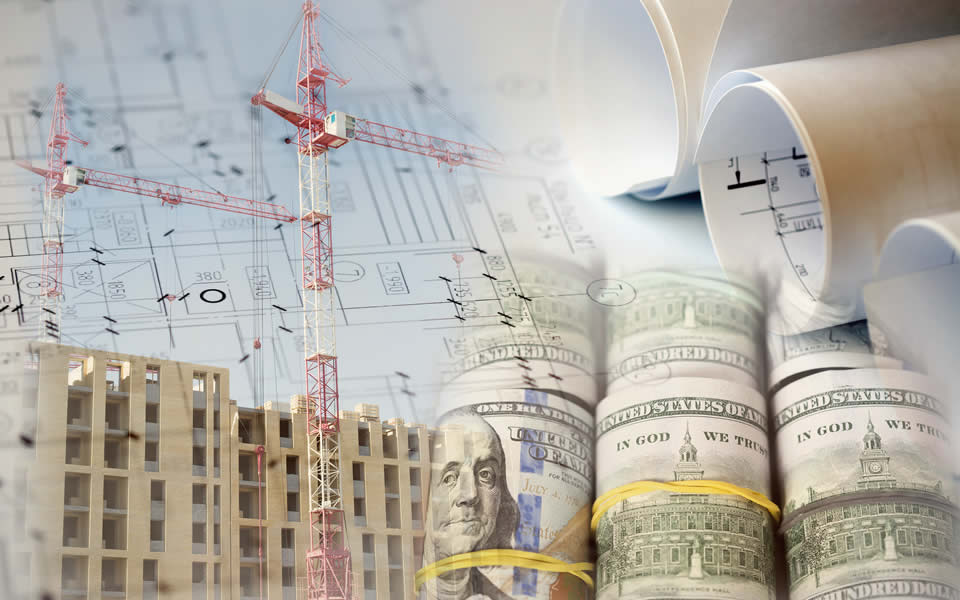Year-End Tax Planning for the Construction Industry
By Tauseef Khan, Supervisor, Tax & Business Services
With colder weather, leaves falling, and holiday lights spread across many homes, it is hard not to get into the holiday spirit. But businesses cannot afford to take their eyes off of their year-end revenue goals and its tax ramifications for their bottom line. With few weeks left to close the books for the year, it’s time for construction businesses to be proactive and engage in year-end tax planning that ensures they’re paying big brother just its legal share. Here are some key things to look into when conducting your year-end tax planning.
Section 179D Deduction
The 179D deduction, also known as the Energy-Efficient Commercial Buildings 179D tax deduction, is a tax incentive first introduced in 2005 as part of the Energy Policy Act. From years 2006 – 2022, designers (including architects, engineers, design-build contractors and performance contractors) of federal, state and local government-owned buildings have been able to claim an immediate first-year deduction for part of the cost of making existing or new buildings more energy-efficient. The Inflation Reduction Act significantly increases the value of this deduction starting in 2023. The Act increases the deduction cap to $5 per building square foot (subject to annual inflation adjustment). To claim the $5-per-square-foot deduction, designers must comply with prevailing wage and apprenticeship requirements. If those requirements are not met, a building owner may claim only a $1-per-square-foot maximum deduction.
45L Tax Credit
Eligible contractors who build or substantially reconstruct new energy efficient homes might qualify for a tax credit of up to $5,000 per home. The actual amount of the credit depends on eligibility requirements such as the type of home, the home’s energy efficiency, and the date that the home is purchased or leased. This credit was expanded as part of the Inflation Reduction Act of 2022.
To qualify, eligible contractors must construct or substantially reconstruct a new, qualifying energy efficient home. They must also own the home, have a basis in it during the construction, and sell or lease the home to a person for use as a residence.
The homes must also fall within specified categories of single-family (including manufactured) or multifamily homes under Energy Star programs, be located in the United States, and meet applicable energy saving requirements based on home type and acquisition date.
Work in Progress Schedule Analysis
While analyzing a work in progress schedule in construction may not directly impact tax planning, it can indirectly affect tax-related decisions. Analyzing the work in progress schedule can be used for tax planning purposes, such as deferring income or accelerating expenses, in order to optimize tax liabilities. For example, if a project is nearing completion towards the end of the tax year, businesses may consider delaying the completion to the following year to defer taxable income.
Under Internal Revenue Code §460, there are several specialized accounting methods available to contractors. These methods all depend on certain definitions established by the IRS (such as Residential Construction and Home Construction) and can result in significant deferrals of income but may require the contractor to file special applications with the IRS. In addition, some construction projects may qualify for a 10 percent deferral election which can be easy to opt into. Furthermore, construction projects may qualify for tax credits or incentives like the Section 179 deduction and 45L tax credit mentioned above. By analyzing the work in progress schedule, businesses can identify projects that meet the eligibility criteria and take the steps necessary to take maximum advantage of the tax benefits available.
Amortization of Research Expenditures
For tax years beginning after 2021, amounts paid or incurred for specified research or experimental expenditures must be amortized ratably over 60 months (or over 15 years for foreign research). Many businesses were hoping that the U.S. Congress would defer the Internal Revenue Code Section 174 amortization requirement for research and experimental expenditures until 2026 and continue to allow businesses the option to deduct R&E expenses in the year incurred (as was the case pre-2022). However, at this time, Congress has not yet approved any such changes so specified research or experimental expenditures must still be amortized for tax year 2023.
Bonus Depreciation
Bonus depreciation can be a valuable tool in reducing taxable income. A bonus depreciation deduction is allowed for qualifying property placed in service before January 1, 2027. If a business is unable to use Section 179’s 100% depreciation deduction due to dollar, investment, or taxable income limitations, then bonus depreciation can be equally effective but it does come with certain caveats. The bonus depreciation deduction is limited to 80% of the purchase price of the qualifying property if purchased in 2023, which reduces to 60% in 2024, 40% in 2025 and 20% in 2026. Also, a majority of states do not comply with federal bonus depreciation rules. As a result, the taxpayer will need to addback the majority of the depreciation taken at the federal level for state returns.
Excess Business Loss Limitation
Non-corporate taxpayers such as individuals, trusts and estates are not allowed to claim a deduction for any excess business loss. Any disallowed excess business losses are treated as net operating losses for the current year, and these become carryovers to subsequent tax years. The at-risk limits and passive activity limits are applied before calculating any excess business loss. An “excess business loss” is the excess of the taxpayer’s aggregate trade or business deductions (determined without regard to the limitation of the provision), over the sum of the taxpayer’s aggregate gross trade or business income or gain, plus the threshold amount, which for 2023 is $578,000 for joint returns and $289,000 for any other filing status.
Please consult a Marcum tax professional for assistance developing the appropriate tax strategy for your particular situation.






